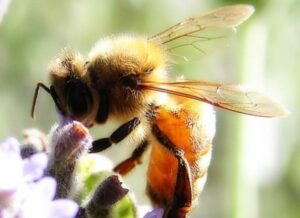EU Bans Fourth Pesticide to Save Bees

Another victory for bees in Europe as EU member states voted to temporarily ban fipronil, a chemical pesticide believed to be a threat to bee populations.
Fipronil, a highly toxic pesticide produced by Germany’s BASF, is already banned in more than two thirds of EU countries. And the official EU ban will restrict use of the insecticide chemical on corn and sunflowers through at least the end of the year. The decision comes just months after the EU’s controversial decision to ban the use of three types of neonicotinoid insecticides also believed to be devastating European bee populations. (Neonicotinoids were linked with the recent deaths of 50,000 bees in Oregon.)
“The evidence that is available from EFSA firmly points to the need for a full precautionary ban on this bee killing pesticide. While Fipronil is already banned in many EU countries, bees don’t stop at national borders,” Herman van Bekkem, ecological farming campaigner for Greenpeace, said in a statement.
Fipronil is used in more than 70 countries on more than 100 crops, reports the Guardian, and the European Food Safety Authority labeled it a “high acute risk” to honeybees. The high number of honeybee deaths means serious impacts to food production. Bees are responsible for every third bite of food—doing important pollinating work for free. Their survival is crucial to producing food and keeping food costs down.
“To stop their decline, the Commission must ban this pesticide and swiftly develop a comprehensive plan against the wider chemical assault that pollinators such as bees face every day,” said van Bekkem.
Keep in touch with Jill on Twitter @jillettinger
Image: aussiegall

